Music Services
At Downingtown Music Academy, we offer a wide range of music lessons to help you in whatever instrument or concepts you want to focus on. Get in touch today.
Music Lessons
at Downingtown Music Academy
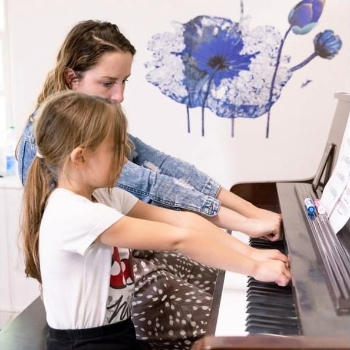
Learning music becomes a magical experience with our comprehensive lessons. Our experienced teachers provide personalized guidance across a range of instruments and musical genres, for students of all levels. Join us and take your first steps towards musical mastery.
Our music lessons offer more than just classroom instruction. We provide a premium experience, from scheduling to performances. Our teachers, with impressive backgrounds in music, emphasize guiding students to success. They have extensive professional experience and a history of awards and achievements.
We strive to make music lessons accessible and engaging, whether taken regularly or sporadically and provide creative tools like practice charts to motivate young students. Join us for a holistic and rewarding musical journey.
Piano Lessons
We offer beginner, intermediate, and advanced piano lessons for children, pre-teens, teens, and young adults. Our curriculum focuses on reading music fluently, developing correct techniques, basic music theory, fine motor skills, and creative exploration for young learners. Intermediate and advanced students can expect to expand their technical skills, and knowledge of music theory, and repertoire, while also delving into music analysis and harmonies.
Piano LessonsVoice Lessons & Singing Lessons
Aspiring singers can expect their lessons to increase their vocal range, improve their pitch and improve their vocal versatility. Each lesson is developed to help with an individual's unique vocal challenges and strengths. Singers will also learn about the anatomy of the voice and its mechanics.
Voice LessonsGuitar Lessons
Our instructors will help you understand the basics of guitar playing: chords, scales, tablature reading and staff reading. Students are invited to play their own songs (which may be modified using visual prompts to help beginners) as well alongside this curriculum.
Guitar LessonsUkulele Lessons
Learn the chords and fingerpicking techniques needed to play your favorite songs. Become a fluent reader of both staff and tab music. Like the guitar, students will have the opportunity to play the songs they enjoy outside of our lesson book.
Ukulele LessonsMusic Theory Composition Lessons/Songwriting
Learn everything from staff reading to harmonization with our music theory/composition lessons. We will assess your understanding of theory and then develop a curriculum to meet your needs. If you’re interested in writing your own music, improvisation and sight-singing will be included in your lessons to help you notate the musical melodies you may have stuck in your head.
Composition LessonsAttend Music Camp
Looking for a local music camp for your children? We offer two-hour mini-camps with no more than 10 students. For more information, click the button below explaining our indoor Exton campsite.
Music CampMusic Class for Homeschooled Children
We have experience offering music classes for children who are homeschooled. Get professional classes to enhance their knowledge of music basics, composition, theory, and experience on several instruments. Click the button below for more information on what the classes look like and more.
Homeschooling Music ClassBenefits of Music Lessons at Downingtown Music Academy
Award winning lessons
Downingtown Music Academy has been voted the best in Downingtown three years in a row since 2019! We’ve won awards on Thumbtack and on Alignable for 2020 best Downingtown business out of 900 businesses on the site.
Our teachers have taught professionally in universities and played in their city’s symphony orchestras and acclaimed venues such as Carnegie Hall. They have won songwriting awards in their cities and opened for hip-hop legends. They have even written courses used internationally in multi-million dollar music company mobile apps.



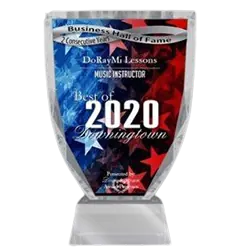


Performance Opportunities
Our studio does recitals twice a year for all students. We also provide open house activities, workshops, master classes, and music for community events such as farmers markets, non-profit concerts, and music festivals. We believe in creating a community through music and we regularly collaborate with like-minded businesses, always looking for new ways to help our students share their talents with others. Check out our upcoming events or like our Facebook page to see what we’re up to!
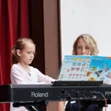


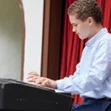
Convenient Lesson Location
Our studio location is conveniently located in the center of Downingtown right near the 30 bypass and 113 making it accessible to students living in Exton, Downingtown, and West Chester, and many other Chester County locations. We also have onsite parking!
Comfy and Clean Waiting Area for Parents
Our waiting area offers coffee, refrigerated water, toys for little ones and of course free WiFi! You can sit in on your child’s lesson, or lounge on our cozy sofa in the waiting area. You can even run errands while they have their lesson- our teachers are all background checked!
Quality Lessons in Person or Online
We have taken great pains to ensure the quality of our Zoom lessons. Teachers provide online games, virtual screen-sharing activities, curated composer content, and time-honored focus strategies to help you or your child have a successful lesson whether in person or online. And it’s the same Zoom link every week- so just come in the virtual waiting room when you’re ready! We even help you with a video consultation to get your devices set up properly for a smooth lesson experience. Check out our video testimonial from an online student above and see examples of real online lessons by clicking the button below.
Easy to Follow Practice Routines
All your assignment information, helpful resources and practice routines are tracked through practice space (our music learning app). You can see where you were months ago, and track your progress, simply by revisiting the notes on past lessons in your app. We also hold conferences twice a year with parents and adult students to discuss goals and progress.
Simple Scheduling
We use Funnel Boss, a scheduling app, to make rescheduling your lessons easy. We also have designated makeup days at the end of each month in case of holidays, teacher illness or power outages.
Flexible Lesson Schedules to Fit Your Lifestyle
Make lessons work on your budget and schedule. You can take them at regular intervals throughout the month, or sporadically when it is convenient to you.
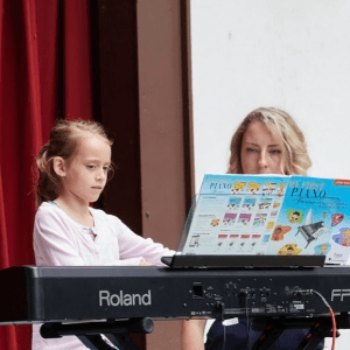
Practice Motivation for Young Students
Sometimes young students really struggle to manage their time with practice. We use fun practice charts like the one above to engage students and help them earn fun rewards like gift cards.
Our lessons go beyond just the classroom. From scheduling to performances, you can expect a premium experience for yourself and/or your child.
Testimonial Video
Our teachers understand the importance of guiding, rather than drilling, students to success. They have taught professionally in universities and played in their city’s symphony orchestras and acclaimed venues such as Carnegie Hall. They have won songwriting awards in their cities and opened for hip-hop legends. They have even written courses used internationally in multi-million dollar music company mobile apps. We work with students to meet their individualized musical goals by helping them select musical choices and teaching younger students through imaginative play and games. We work with parents to motivate students through token systems for practice.
Our studio does recitals twice a year for all students. We also provide open house activities, workshops, master classes, and music for community events such as farmers markets, non-profit concerts, and music festivals. We believe in creating a community through music and we regularly collaborate with like-minded businesses, always looking for new ways to help our students share their talents with others. Check out our upcoming events or like our Facebook page to see what we’re up to!
If you are looking for online lessons, we have taken great pains to ensure the quality of our Zoom lessons. Teachers provide online games, virtual screen-sharing activities, curated composer content, and time-honored focus strategies to help you or your child have a successful lesson whether in person or online. And it’s the same Zoom link every week- so just come in the virtual waiting room when you’re ready! We even help you with a video consultation to get your devices set up properly for a smooth lesson experience. Check out our video testimonial from an online student above and see examples of real online lessons by clicking here.
All your assignment information, helpful resources and practice routines are tracked through practice space (our music learning app). You can see where you were months ago, and track your progress, simply by revisiting the notes on past lessons in your app. We also hold conferences twice a year with parents and adult students to discuss goals and progress.
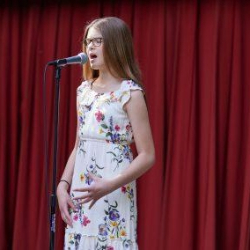 We use a scheduling app called “Funnel Boss” to make rescheduling your lessons easy. We also have designated makeup days at the end of each month in case of holidays, teacher illness or power outages. Check out our calendar to see our makeup days for next month.
We use a scheduling app called “Funnel Boss” to make rescheduling your lessons easy. We also have designated makeup days at the end of each month in case of holidays, teacher illness or power outages. Check out our calendar to see our makeup days for next month.
Make lessons work on your budget and schedule. You can take them at regular intervals throughout the month, or sporadically when it is convenient to you.
Sometimes young students really struggle to manage their time with practice. We use fun practice charts like the one above to engage students and help them earn fun rewards like gift cards.
Ready to Learn?
FAQs
Do you offer performance opportunities?
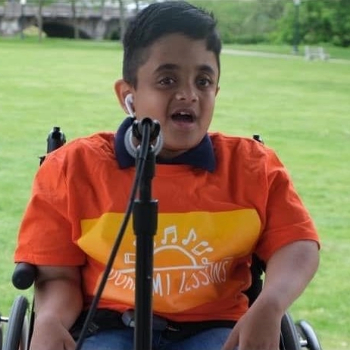 Yes! We do recitals twice a year for kids aged 3-18. We also do master classes once a month with top performers and musicians in the area. Finally, we do workshops and community performances throughout the year. Check our calendar and keep on top of your newsletter emails to see them all!
Yes! We do recitals twice a year for kids aged 3-18. We also do master classes once a month with top performers and musicians in the area. Finally, we do workshops and community performances throughout the year. Check our calendar and keep on top of your newsletter emails to see them all!
How do I motivate my child to practice?
Check out our blog for tips on this, and don’t be afraid to schedule a 15-minute chat using our scheduling link if practice is a struggle. We’ll help you get back on the right track. Practice space also rewards students for practice with points! We have a rewards system in the studio to go along with this.
What do I need for lessons?
(Be prepared in case of weather emergency to have Zoom set up on your device)
Piano: selfie stick, book(s), two devices, keyboard (88 keys, weighted) or piano, Zoom
Voice: two devices, Zoom
Guitar: instrument, one device, books, Zoom
Do I need an instrument to do lessons? Can’t I just “try it out”?
We can definitely do a trial lesson. However, in order to actually gauge progress and have lesson content change from week to week (i.e. not repeating the same song over and over because we only see each other once a week or less), you will need an instrument to start lessons.
What if I have a weird schedule?
No problem! You can do schedule-as-you-go lessons! This is a different time every week and you pay per lesson. Visit our booking page and book using one of the schedule-as-you-go options. If you’re not taking lessons with Rosalind, please reach out to get your teacher’s appointment booking page.
What if I want to discuss my or my child’s lesson progress or practice habits?
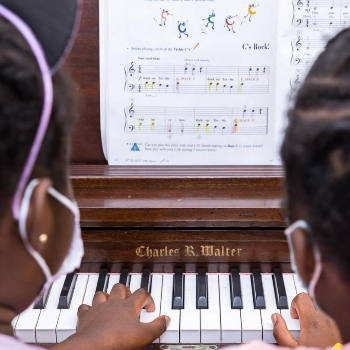 Use the same link from above and click “15-minute chat” to schedule a time.
Use the same link from above and click “15-minute chat” to schedule a time.
What about holidays?
We do makeups for the holidays. We also have specific makeup days at the end of every month to offer a bit of a buffer in case of teacher sickness, holidays, or emergency power outages.
What about bad weather if I’m in person?
We hold lessons online over Zoom for this.
What is the Zoom ID for lessons?
7996798089. There’s no password.
What about if I miss a lesson? Is my month prorated?
No, we do not do credits or refunds for missed lessons. As long as you give 24 hours' notice though, you will get a makeup using the link above.
How do I practice at home?
Please refer to your files in Practice Space and your assignment descriptions. View our tips for practicing at home here.
How many lessons do I get a month?
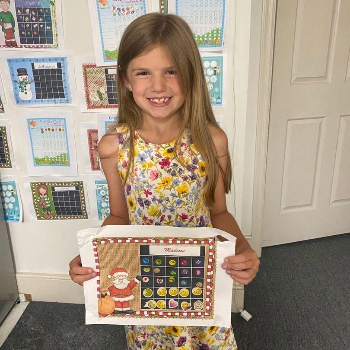 Four. If your lesson falls on the 29-31 of the month, it is canceled. These are makeup days.
Four. If your lesson falls on the 29-31 of the month, it is canceled. These are makeup days.
Are there any discounts?
Occasionally we offer discounts throughout the year for new students. As a current student, you can also get a free lesson if you refer a friend!
How does payment work?
Most lessons are paid on a monthly basis, for weekly or biweekly recurring lesson times. Your invoice for the next month will be sent on the 18th of the current month and must be remitted prior to your first lesson of the month. They come through QuickBooks to your email. Cash, Check, PayPal, or Credit Card are accepted.
Start Lessons Today!
Get In Touch With Us
